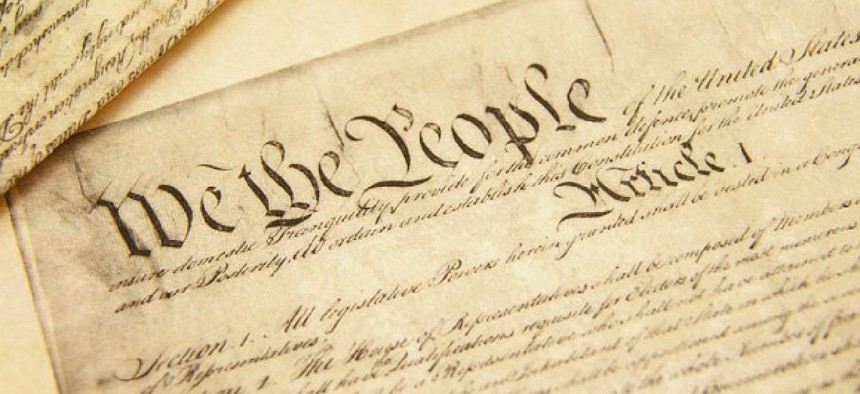Secrecy Undermines the Ability of Congress to Function as the Framers Intended
The national-security state is removing important moral and strategic policy questions that face our polity from the realm of democratic debate.
In an item at Wonkblog, Ezra Klein reflects on the legislature's role in the surveillance programs revealed over the last 48 hours. "We don't know how much Congress has been told about these programs, though it seems they have known at least some details for quite a long time," he writes. If they've been subject to congressional oversight, then "that's even scarier," he continues:
It speaks to a systemic acceptance of this kind of surveillance across the law and the Congress and the oversight courts. It means this is not the action of an overzealous NSA or even an overzealous administration but the consequences of a broad redefinition of the government's domestic surveillance powers -- one that has managed to stick across both the Bush and Obama administrations, and one that will thus be that much harder to uproot.
The administration protests that they have, over and again, brought powers the Bush administration exercised unilaterally into frameworks where they're overseen by courts and by Congress. That's the "more sustainable footing" Baker refers to. But that's only comforting if the courts and the Congress act as independent voices on these issues. If they simply rubberstamp any decision filed under "national security," then that can, in certain ways, be worse: It makes everyone involved confident that the new powers have passed constitutional muster and been validated by tough oversight even as the American people would be shocked at what's being done in their name.
This gave me a thought. Congress cannot act as a check on the executive branch in the way the Framers intended when hugely consequential policies it is overseeing are treated as state secrets. The Senate, intended as a deliberative body, cannot deliberate when only the folks on the right committees are fully briefed, and the Ron Wyden types among them think what's happening is horribly wrong, but can't tell anyone why because it's illegal just to air the basic facts.




